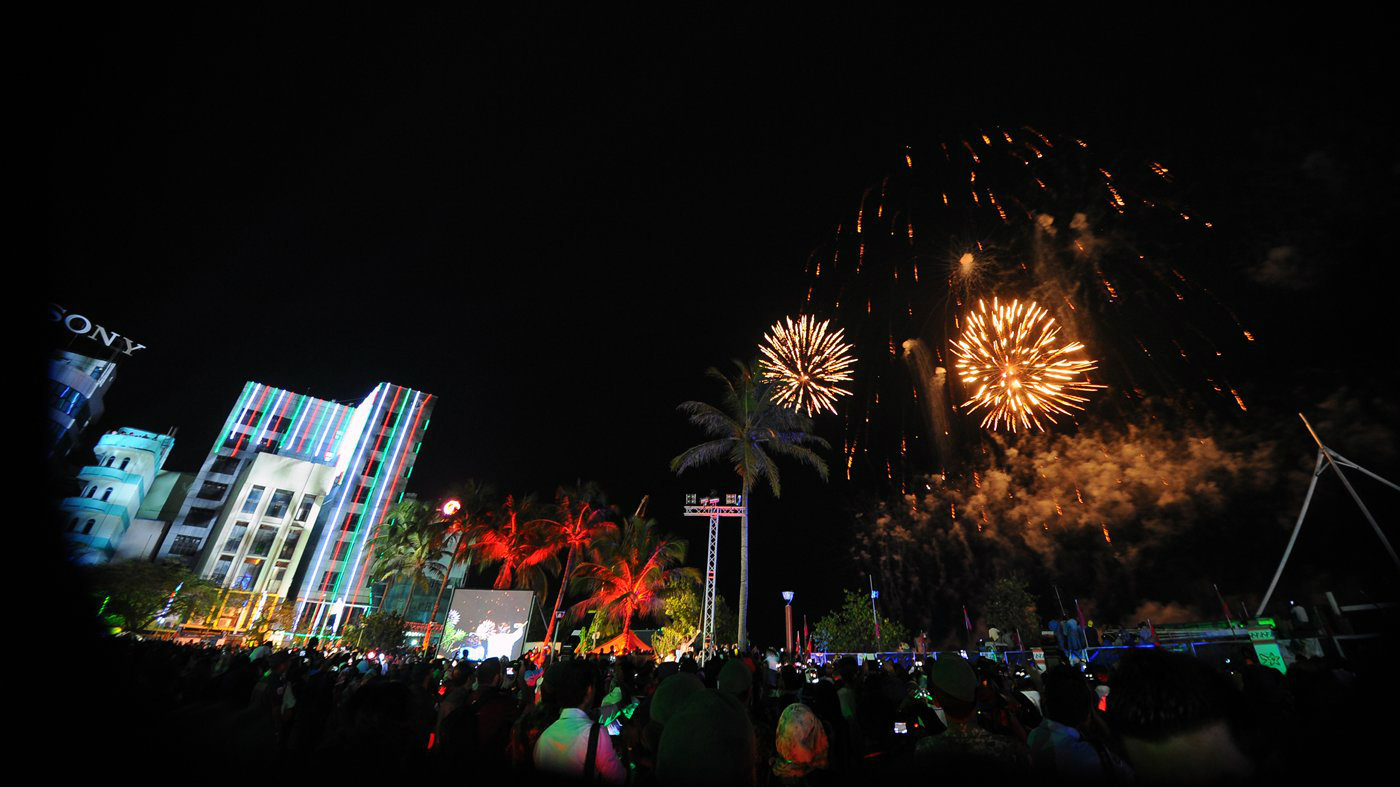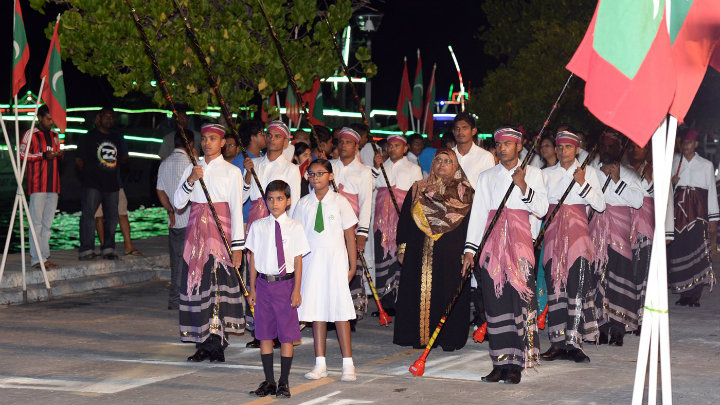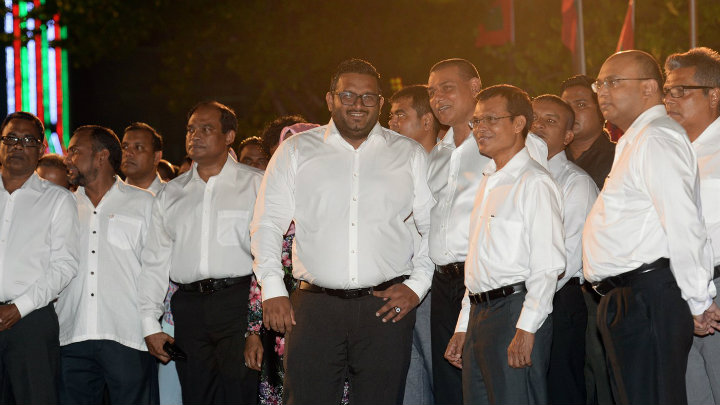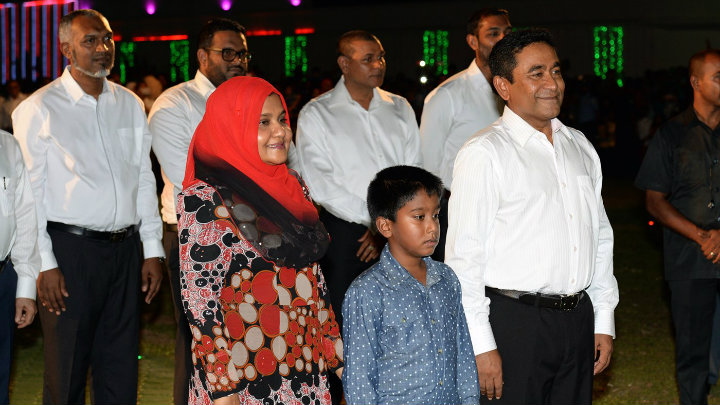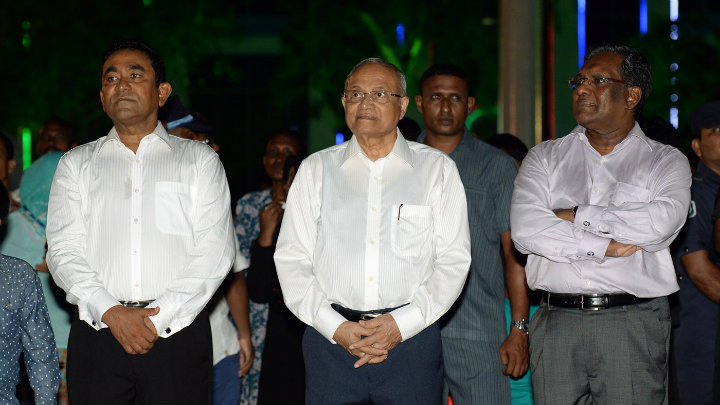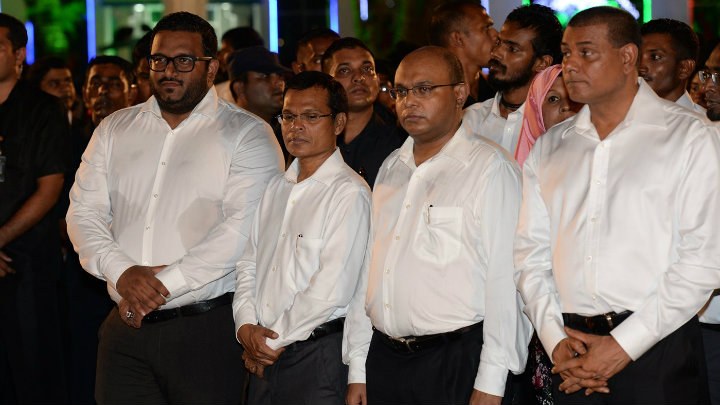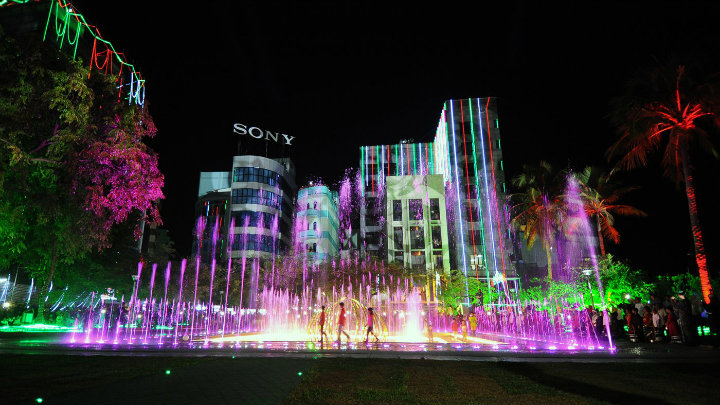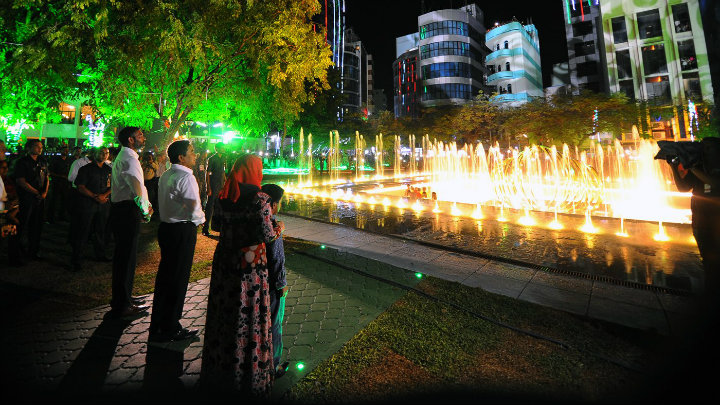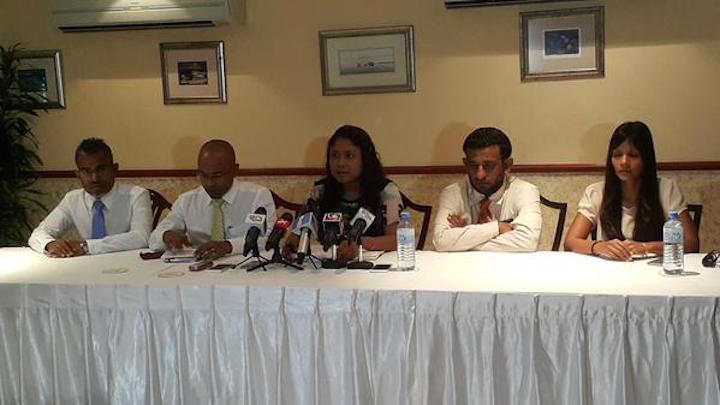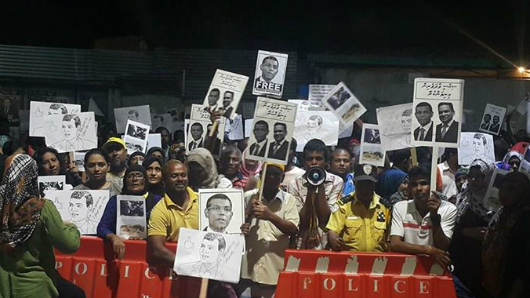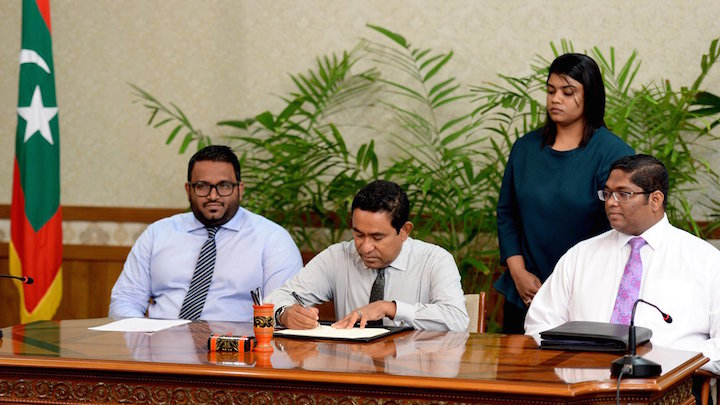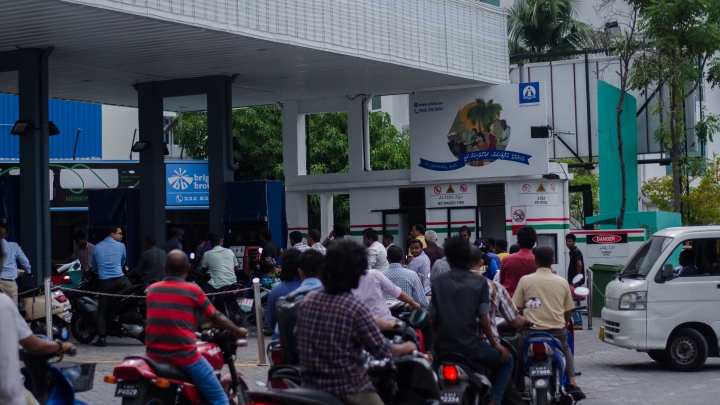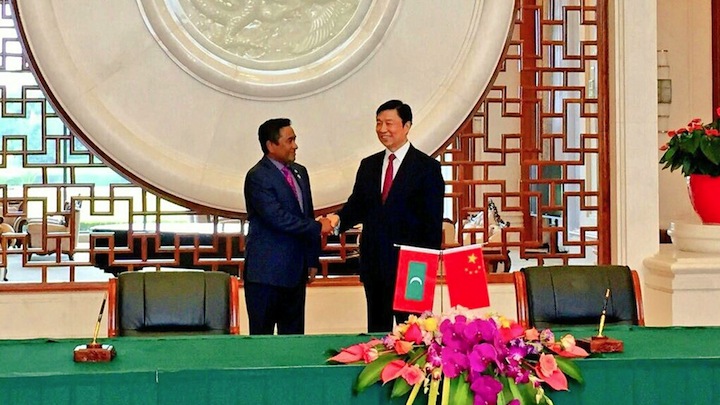The main opposition Maldivian Democratic Party (MDP) has called on President Abdulla Yameen to honour commitments made to release former president Mohamed Nasheed and other jailed politicians.
Instead of releasing Nasheed on Thursday as rumoured, the state decided to appeal his terrorism conviction. His 13-year jail term, however, has been commuted to house arrest.
Revealing details of the government’s demands for the first time, the MDP said President Yameen had requested opposition backing to amend the constitution to set new age limits of 30-65 years for the presidency and vice presidency, and the impeachment of Vice President Dr Mohamed Jameel Ahmed.
The government also asked for legislative support for specific projects, later revealed to be a second constitutional amendment to allow foreigners to buy land in the Maldives.
The MDP said it had delivered on all counts by issuing a three-line whip on the first two demands, and a free whip on the controversial foreign freeholds amendment. The party said it had also complied with a moratorium on street protests.
The free whip on foreign freeholds has divided MDP supporters. The party said it had issued a free whip line because it believes in free ownership of land and property, but had reservations that the amendment could lead to foreign, non-commercial logistical installations or military bases being built in the Maldives.
In return, it had asked for freedom for political prisoners, including Nasheed, the dropping of charges against more than 1,000 political activists and reforms to the judiciary and independent institutions.
The government agreed and home minister Umar Naseer made a number of promises during the talks that began on July 1, the party said.
“The MDP believes the government of Maldives must follow through on its commitments before the Independence Day celebrations on July 26,” the party said.
Stressing that it had entered talks with the government in good faith, the MDP said it had hoped to see meaningful reform to the “hopelessly politicised and corrupt” judiciary and independent institutions. Further, the party also wished to usher in a parliamentary system of government for the Maldives.
Nasheed’s legal team on Friday called the Prosecutor General’s decision to appeal the terrorism conviction “a charade,” and said they will make a decision to participate after discussion with the opposition leader’s international legal team.
The lawyers said the appeal could affect ongoing talks between the opposition and the government over the release of jailed politicians.
President’s office spokesperson Ibrahim Muaz Ali said in a tweet yesterday that he did not believe the actions of independent body of the state could “obstruct talks between the government and MDP.”
In a brief statement on Thursday, the PG office said the decision to appeal the conviction was made based on concerns raised over due process in the trial and Nasheed’s request for the PG to appeal the conviction as well as his contentions over procedural violations, insufficient time to mount a defence, and inability to appeal due to the criminal court’s failure to provide a full report and transcripts of the trial within a 10-day period for filing appeals.
Diplomatic pressure had been mounting on President Yameen to release Nasheed, but the international community has been silent since the MDP started negotiating with the government.
The Commonwealth Ministerial Action Group (CMAG) opted to keep the Maldives off its agenda soon after talks began. President Yameen has now asked the parliament for its counsel on leaving the Commonwealth.
The UN working group on arbitrary detention is meanwhile expected to rule on Nasheed’s imprisonment in September or October. In a response to the UN, the government insisted Nasheed must appeal the sentence.
There appears to be no progress on the release of the Adhaalath Party president or two former defence ministers.

